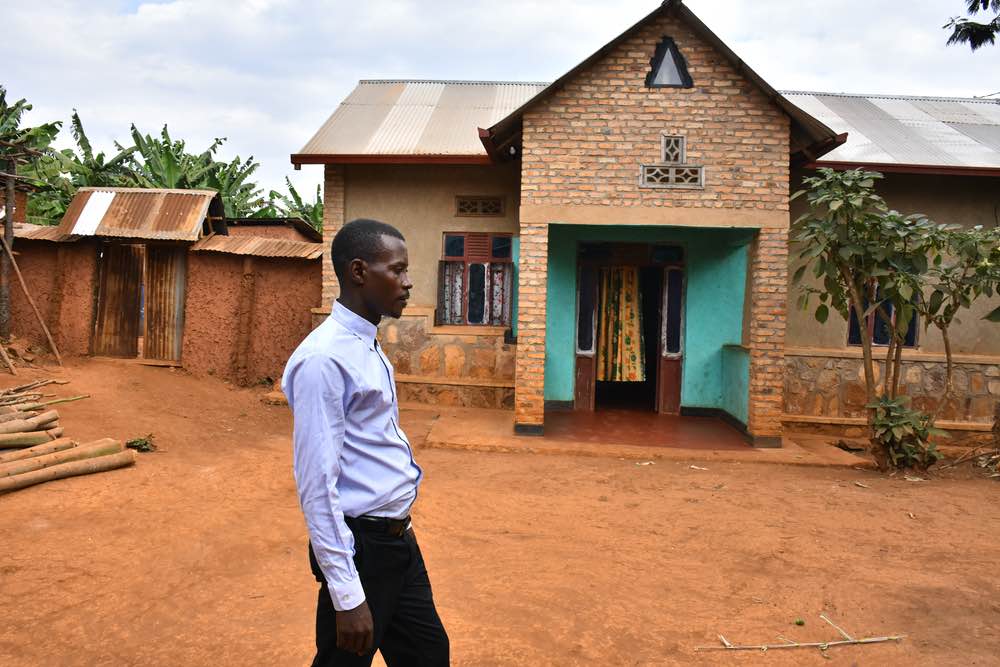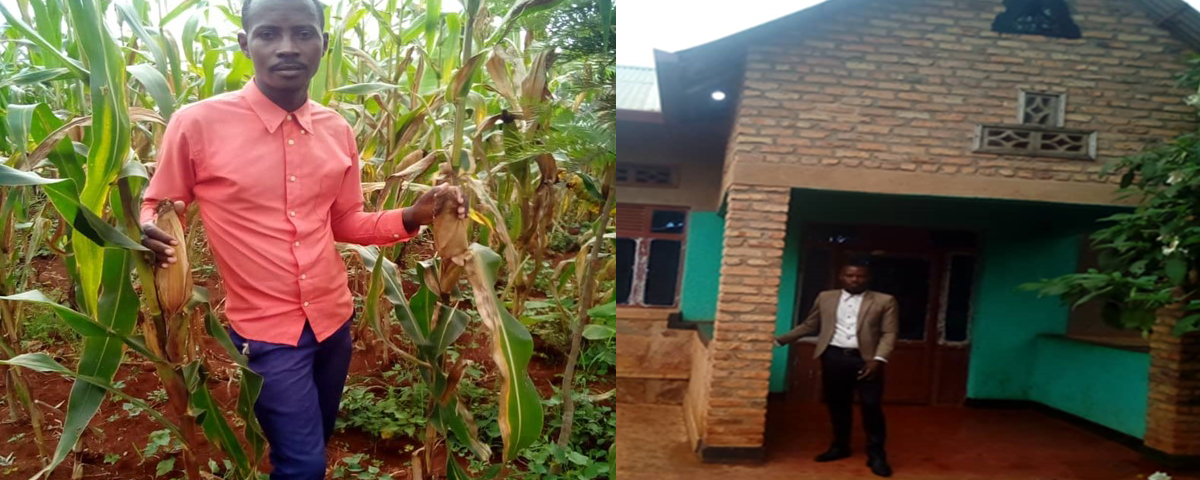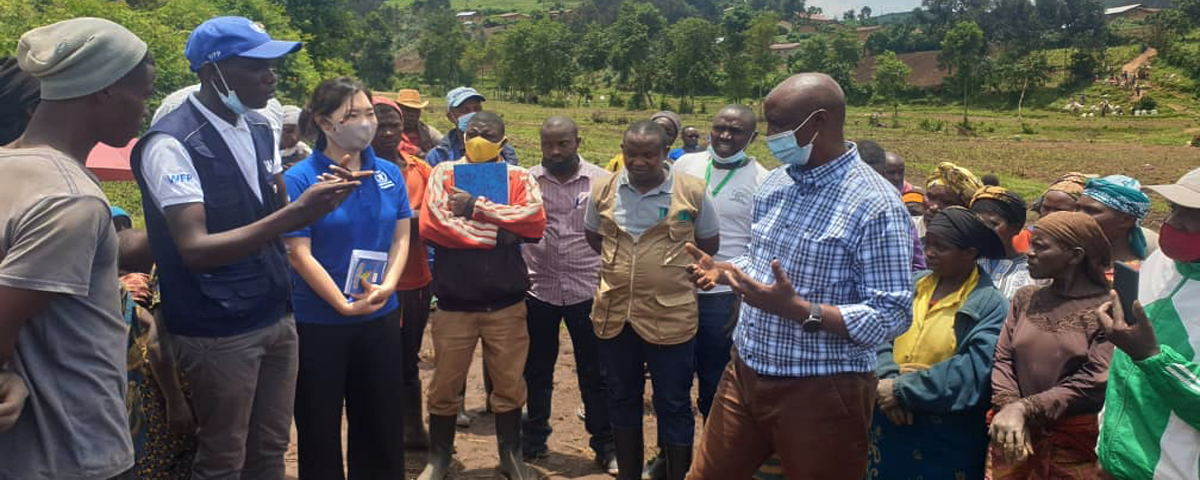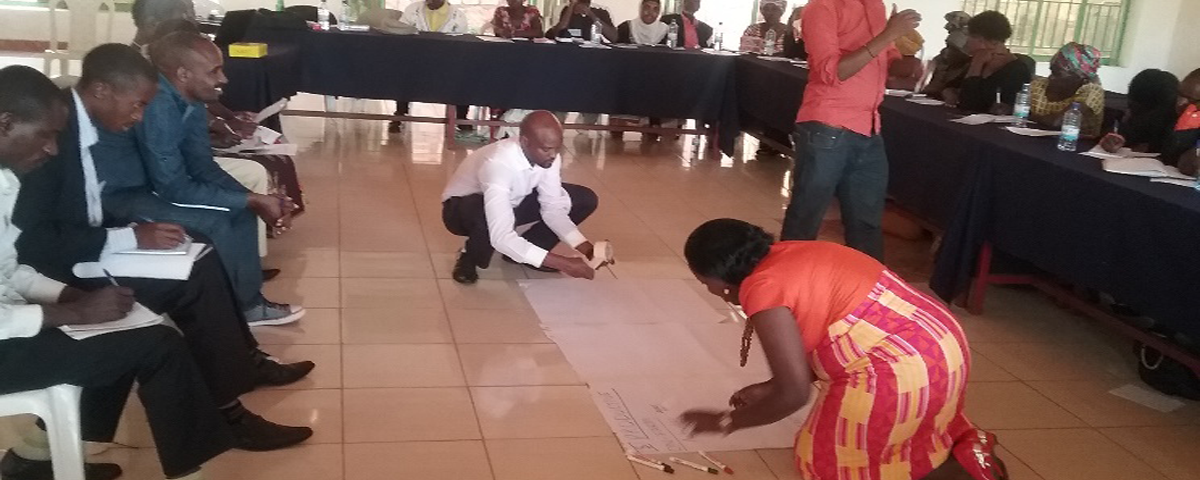Dieudonné Manishimwe, residing in Karambo Village, Rugendabari Cell of Mukarange Sector in Kayonza District, became a farmer at an early age having practiced farming right from his childhood.
The 33-year-old husband and father of two children inherited farming from his parents, who practiced traditional farming. Although agriculture provided for the family, production was always characterized with low yields. When the youthful Manishimwe started farming as his full-time job ten years ago, he could barely make ends meet. With all the energy and time, he put in his farm, production stood at only one tonne per hectare.
As Kayonza District in Eastern Province is known to be one the most productive areas for cereal crop production in the country, many of maize farmers like Manishimwe faced poor production and lacked a steady market for their produce.
To support farmers, Rwanda Development Organisation (RDO) through the implementation of Farm to Market Alliance (FTMA), a platform that helps smallholder farmers transition to commercial agriculture recruited different cooperatives in Kayonza. Karambo I Cooperative located in Rugendabari Cell, Mukarange Sector to which Manishimwe belongs, was among the cooperatives that benefited from RDO intervention since January 2020.
Among the support is to provide adequate information, investment and support farmers at all stages of the process – from seed to market. Fiston MUTABAZI, RDO Senior Extensionist in Eastern province explains that the aims under this program is to increase production in quality and quantity, where RDO has been working with farmers in different cooperatives.

Manishimwe who joined Karambo I Cooperative in 2014, grew maize on 2-hectares on hillside of Rutare and Karambo Villages. In the early years, he repeatedly faced low productivity and post-harvest losses. For instance, in Season A 2017, he grew maize on 1ha and harvested about 2MT, he incurred losses due to side selling for lack of a stable market or contract buyers, which means that he sold his produce at a low price, he said he didn’t even know how to calculate a profit or loss.
“After receiving training in Good Agricultural Practices (GAPs) and Post-Harvest Handling and Storage (PHHS), I increased production quantitatively and qualitatively to secure home consumption and sold my maize surplus to formal buyers through market linkages by FtMA,” Manishimwe said.
Productivity has increased from 2MT to 5MT per hectare as a result from a series of trainings and coaching received through FtMA. Manishimwe explains that through FtMA, his cooperative sold maize to Africa Improved Foods (AIF).
“From the sales, I managed to save and bought 1ha land at Rwf. 2,000,000 to expand maize production and also bought a cow at Rwf. 400,000 for milk and compost.”
In the 2022A season, he sold 7,700kg at 240 Frw/kg to AIF through his cooperative, generating Rwf. 1,848,000. After deducting the cost of production estimated at Rwf. 957,000, he remained with some good income to venture into other income generating activities as well as better livelihoods for his family.
Incomes for Manishimwe and his family have kept rising as he continues to apply acquired skills in GAPs and PHHS. He has rehabilitated his residential house and the family is living more comfortably. Murenzi observes that many smallholder farmers are benefiting from the collaboration under FtMA that is connecting farmers to big potential buyers, financial institutions and agro dealers.




